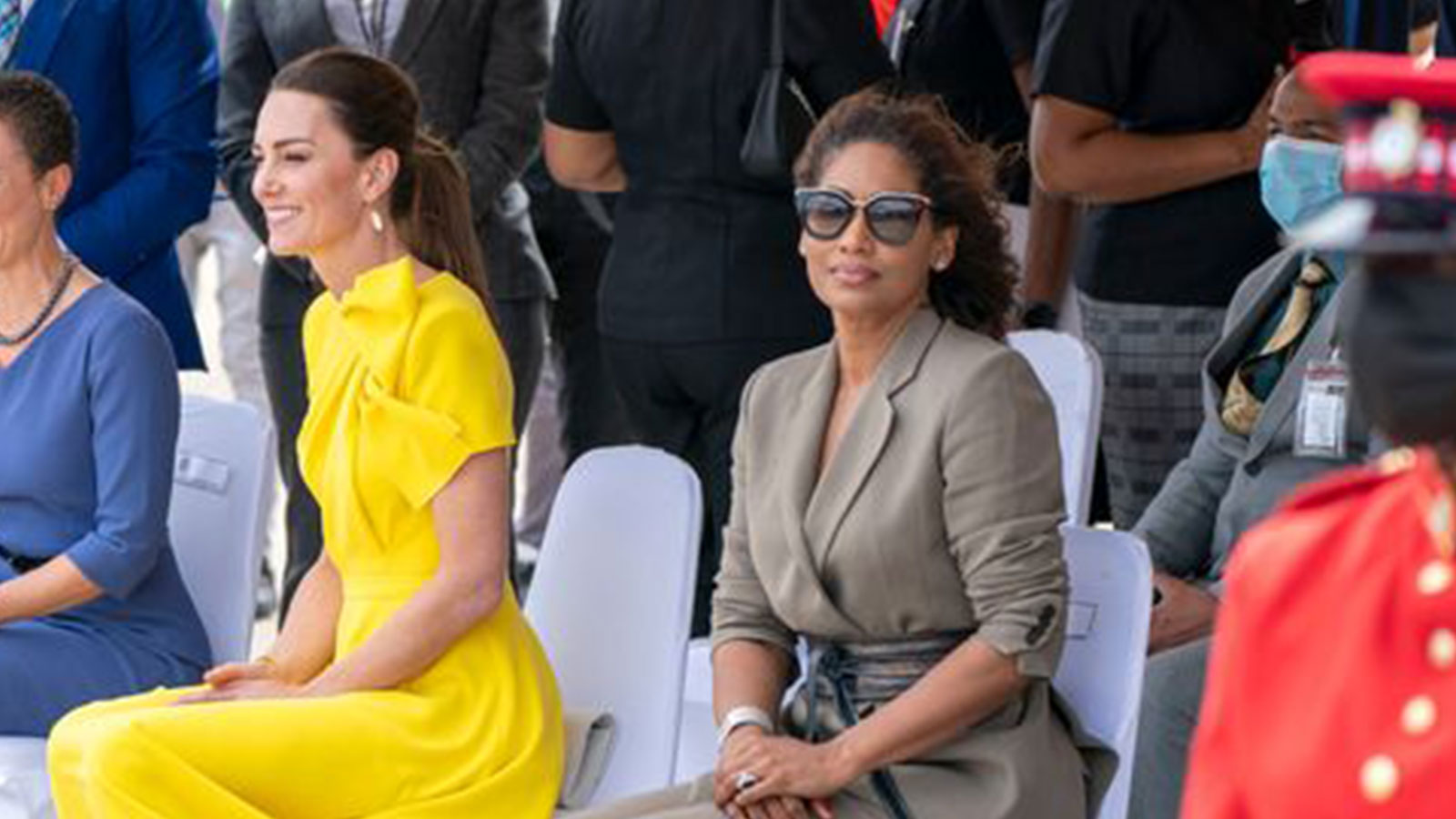Prince William condemns slavery, but the monarchy benefited from it. The journey to justice must include reparations, says Jamaican MP Lisa Hanna.
In Jamaica, we often use the word “respect” when we greet or part ways with other people, no matter who they are or where they come from. We say this word because we mean it. We respect you as a person because we are all made in God’s image, and we seek to show appreciation for your value. The word respect does not mean that we always agree with that person; it is simply an acknowledgment of their humanity and their value.
Much fuss has been made of my supposed snub of the Duchess of Cambridge because of a two-second manipulated clip taken out of context. I have nothing but respect for Catherine as a person, and I treated her with that respect and cordiality, as evidenced by many other photos and videos of our interaction. I do not have any quarrel with the duchess herself, the people of the United Kingdom or the government.
The more significant issue at play is the current global reality that our institutions have created over centuries. We all know the history of wars of conquest, slavery, subjugation and colonisation. We all know about the extraction of resources and the exploitation of lands and labour. Sadly, too many of us do not know that it was the slavemasters – not the slaves or their descendants – who received reparations after slavery ended and the plantations collapsed. We know many of these things; and we all know deep in our hearts that these things were, are and always will be wrong.
We in the Caribbean Community (Caricom) are united across our myriad national, political, ethnic and regional differences in the belief that the issue of reparations must be taken seriously. We have studied the topic extensively, held conferences, and written white papers on the need for reparations and how to practically implement such a policy in the 21st-century.
What we now need is for the west, especially the United Kingdom, to seriously engage with us on this matter. And, it’s not just lip service that we require. Flowery words and artful symbols not only do not placate us, but words without action will also offend us. We need leaders in civil society, in politics and in the monarchy to not only acknowledge historic exploitation and the consequences thereof but to begin to make concrete steps to rectify it.
Work has already been done. The Caricom Reparations Commission has outlined a clear 10-point action plan with a tangible plan forward for creating justice. The leaders of this commission and the region are ready to in good faith engage on this plan and implement a framework for moving forward. I sat on this commission and am proud of the work that was done. But that work was done by Caricom alone and the reality is that it takes good faith on all sides if we truly want to achieve the justice we all know deep down is needed.
We in the Caribbean cannot do it alone any more. And it is not just something our diaspora can lead on. It is going to take bold leadership in the UK and indeed across the western world to have the bravery, humanity and political courage to stand up and agitate for the issue of reparations.
I am heartened that Barbados and now Jamaica are taking steps towards becoming truly independent by removing the Queen as head of state and becoming republics. However, this is just a step, and we must not rest on our laurels Our friends in the United Kingdom should be under no illusion that because these moves have been made, that the journey to justice is now complete. Far from it.
The evils of slavery cannot be forgotten. Nor can the wealth gained from it by a few – including the wealth gained by the institution of the monarchy – be forgotten. Indeed, the Duke and Duchess of Cambridge have a unique opportunity to define their own issues and advocacy. It is my hope that this Caribbean visit will stir their emotions and their thoughts, and that as they ascend they will refine the monarchy’s perspective with an eye toward building a fairer and more just global society.
Condemning slavery with no action, as both Prince Charles and Prince William did, is not particularly bold, nor does it show courage. I would hope that this rhetoric is a start and not an end to their journey on the issue of reparations and justice.
When we in Jamaica say respect, we mean it. We respect you. We respect Prince William and Catherine. We respect the British people. We respect your leaders. When you visit Jamaica, we are polite to you. We are cordial to you. We give you the time of your life on holiday. We laugh with you. We cry with you. All we ask is for reciprocity by taking our advocacy seriously, and that together we can right the historical wrongs and reset the political, economic and social system for future generations.
Lisa Hanna is a Jamaican MP and UN Development Programme goodwill ambassador
Source: The Guardian
Featured image: The Duchess of Cambridge with the writer at Norman Manley international airport in Kingston, Jamaica, on Tuesday. Photograph: Jane Barlow/PA















